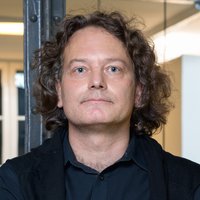Ethics & STICs
- Durée : 4 semaines
- Effort : 15 heures
- Rythme: ~3h45/semaine
- Langues: Anglais
Ce que vous allez apprendre
À la fin de ce cours, vous saurez :
- Navigate the legal, social and regulatory framework in which scientific research is conducted.
- Assert a basic understanding of the goals, methods and practice of scientific research, so as to avoid the pitfalls of misconduct and malpractice. (scientific integrity)
- Understand how scientific activity changes our lives and impacts society, for good or for bad, and acquire a framework to help you control this impact (research ethics)
- Apply this general framework to the context of information technologies (Computer and Information Ethics)
- Acquire the basis for protecting the value produced by science (intellectual property, open science), communicating properly at the time of internet (scientific communication, open science and internet ethics) and protect our digital selves (privacy and personal data)
- Finally acquire an overview of some important ethical debates around information technologies, such as design ethics, the ethics of decision management, the ethics of data science, the ethics of autonomous systems, and global information ethics.
Description
What does integrity in research mean and why is it important to follow an ethical conduct in your research work? Entering a PhD programme, you are moving from a student’s position, where your main responsibility was to acquire and demonstrate acquisition of knowledge, into a position of producing knowledge. This creates new relationships with coworkers and your hosting institutions, new expectations, and new responsibilities towards science and society in general.
To help you understand these changes, the STIC doctoral school of the University Paris-Saclay provides this course to all its students. It balances a pragmatic “must know” perspective, which can and must be acquired easily and fast, with more conceptual developments aimed at opening you up to the uncertainties and risks that are specific to your scientific domain.
This course is focused on the specific types of ethical issues encountered in information technologies, which deserve specific attention. If answering an ethical dilemma in bioethics is often akin to answering the question "who are we?", technology ethics triggers more questions of the type "where are we going?". This, in our opinion, deserves a broad exposure.
Format
The course is organized in 8 chapters, more or less independent, but raising in abstraction as the course progresses. Each of these chapters includes:
A lesson to be read by the student. As much as possible, the content is summarized in a set of checklists involving as few guidelines as possible, for easy memorization.
Examples of how the material discussed may be relevant in their context of work. We provide “horror stories” and “happy stories” of past events relevant to the topic addressed, as well as questions and issues for the student to ponder over.
References are hyperlinked in the course of the text, and a “further reading” section is sometimes provided.
Finally, some validation questions are proposed after each section. To allow self-delivery of the material, the exercises are proposed as multiple choice questionnaires, which enable full automation of the test administration and certification process. The questions however demand attention and studying of various documents to be answered properly.
Prérequis
This course is addressed to all PhD students and researchers in Information & Communication Sciences & Technologies, with no particular prerequisites.
Evaluation et Certification
The evaluation is focused on the “must know” part of the curriculum. It consists of about 100 multiple-choice questions. Those are meant to ensure the main rules and guidelines have been acquired, not to assess your ability to reason and develop critical thinking in this area, no matter how much we’d like to trigger that motivation.
Several doctoral schools in France validate the certificate delivered by this course as the mandatory training in scientific integrity and research ethics mandated by the ministerial ruling of 2016 regarding doctoral training. If you are a PhD student, you are advised to contact your doctoral school to check if they will validate this training as such.
Plan de cours
- The Doctoral Contract (researcher as a subject under law and an employee),
- Research Integrity (producing science correctly),
- Research Ethics (producing science responsibly),
- Computer and Information Ethics (how these apply to your research context),
- Intellectual property (researcher as a producer and consumer of value, open science),
- Scientific Communication, Open Science and Internet Ethics (disseminating knowledge publicly),
- Privacy and Personal data (protecting our digital selves),
- Emerging issues in Computer and Information Ethics (what’s next).
Équipe pédagogique
Thomas Baudel
Catégories
Arnaud Billion
Catégories
Établissements
Licence
Licence pour le contenu du cours

Tous droits réservés
"Tous droits réservés" est une formalité du droit d'auteur indiquant que le détenteur du droit d'auteur se réserve, ou détient pour son propre usage, tous les droits prévus par la loi sur le droit d'auteur.
Licence pour le contenu créé par les participants du cours

Attribution - Pas d’Utilisation Commerciale - Pas de Modification
Vous êtes autorisé à :
- Partager — copier, distribuer et communiquer le matériel par tous moyens et sous tous formats
Selon les conditions suivantes :
- Attribution — Vous devez créditer l'oeuvre, intégrer un lien vers la licence et indiquer si des modifications ont été effectuées à l'oeuvre. Vous devez indiquer ces informations par tous les moyens raisonnables, sans toutefois suggérer que l'offrant vous soutient ou soutient la façon dont vous avez utilisé son oeuvre.
- Pas d’Utilisation Commerciale — Vous n'êtes pas autorisé à faire un usage commercial de cette oeuvre, tout ou partie du matériel la composant.
- Pas de modifications — Dans le cas où vous effectuez un remix, que vous transformez, ou créez à partir du matériel composant l'oeuvre originale, vous n'êtes pas autorisé à distribuer ou mettre à disposition l'oeuvre modifiée.



